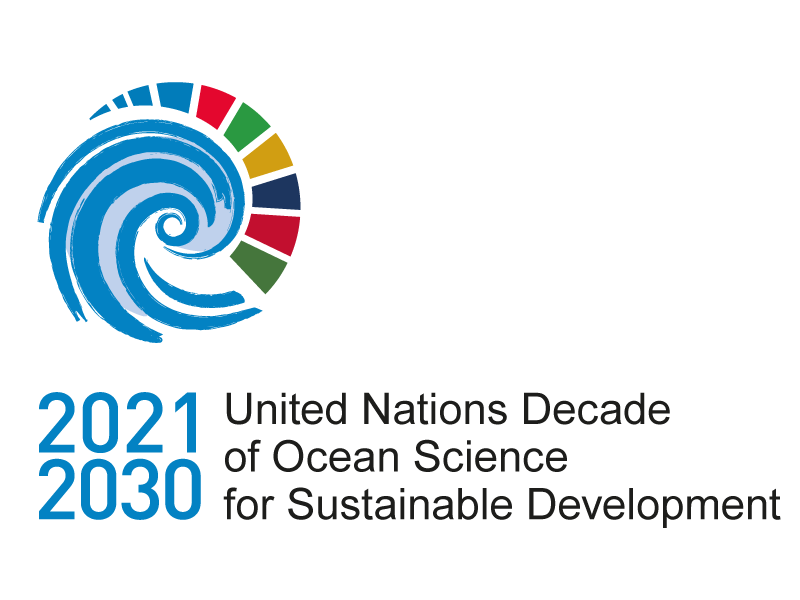Seven Outcomes
Seven outcomes describe the ‘ocean we want’ at the end of the Decade. They describe both the desired state of the ocean (Outcomes 1 and 2), and the desired state of society’s use of, and interaction with, the ocean (Outcomes 3 to 7).
A clean ocean
Society generates a vast range of pollutants and contaminants including marine debris, plastic, excess nutrients, anthropogenic underwater noise, hazardous chemicals, organic toxins, and heavy metals. These pollutants and contaminants derive from a wide variety of land and sea based sources, including point and non-point sources. The resulting pollution is unsustainable for the ocean and jeopardises ecosystems, human health, and livelihoods. It will be critical to fill urgent knowledge gaps and generate priority interdisciplinary and co-produced knowledge on the causes and sources of pollution and its effects on ecosystems and human health. This knowledge will underpin solutions codesigned by multiple stakeholders to eliminate pollution at the source, mitigate harmful activities, remove pollutants from the ocean, and support the transition of society into a circular economy.
A healthy and resilient ocean
Degradation of marine ecosystems is accelerating due to unsustainable activities on land and in the ocean. To sustainably manage, protect or restore marine and coastal ecosystems, priority knowledge gaps of ecosystems, and their reactions to multiple stressors, need to be filled. This is particularly true where multiple human stressors interact with climate change, including acidification and temperature increase. Such knowledge is important to develop tools to implement management frameworks that build resilience, recognise thresholds and avoid ecological tipping points, and thus ensure ecosystem functioning and continued delivery of ecosystem services for the health and wellbeing of society and the planet as a whole.
A productive ocean
The ocean is the foundation for future global economic development and human health and wellbeing, including food security and secure livelihoods for hundreds of millions of the world’s poorest people. Knowledge and tools to support the recovery of wild fish stocks, deploy sustainable fisheries management practices, and support the sustainable expansion of aquaculture, while protecting essential biodiversity and ecosystems, will be essential. The ocean also provides essential; goods and services to a wide range of established and emerging industries including extractive industries, energy, tourism, transport and pharmaceutical industries. Each of these sectors has specific, priority needs in terms of increased knowledge, and support to innovation, technological development and decision support tools to minimise risk, avoid lasting harm, and optimise their contribution to the development of a sustainable ocean economy. Governments also require information and tools, for example via national accounts that incorporate ocean indicators, to guide development of sustainable ocean economies and promote marine sectors.
A predicted ocean
The vast volume of the ocean is neither adequately mapped nor observed, nor is it fully understood. Exploration and understanding of key elements of the changing ocean including its physical, chemical and biological components and interactions with the atmosphere and cryosphere are essential, particularly under a changing climate. Such knowledge is required from the land-sea interface along the world’s coasts to the open ocean and from the surface to the deep ocean seabed. It needs to include past, current and future ocean conditions. More relevant and integrated understanding and accurate prediction of ocean ecosystems and their responses and interactions will underpin the implementation of ocean management that is dynamic and adaptive to a changing environment and changing uses of the ocean.
A safe ocean
Hydro-meteorological, geophysical, biological and human induced hazards create devastating, cascading and unsustainable impacts for coastal communities, ocean users, ecosystems, and economies. The changing frequency and/or intensity of weatherand climate- related hazards is exacerbating these risks. Mechanisms and processes for assessing priority risks, mitigating, forecasting and warning of these hazards and formulating adaptive responses are required to reduce short- and longer-term risks on land and at sea. Higher density ocean data and improved forecast systems – including those related to sea level, marine weather and climate are needed from near real time through decadal scales. When these enhancements are linked to education, outreach, and communication, they will empower policy and decision-making, and they will mainstream individual and community resilience.
An accessible ocean
Inequalities in ocean science capacity and capabilities need to be eradicated through simultaneously improving access to and quality control of data, knowledge, and technology. This needs to be coupled with increased skills and opportunities to engage in data collection, knowledge generation and technological development, particularly in LDCs, SIDS and LLDCs. Increased dissemination of quality controlled and relevant ocean knowledge to the scientific community, governments, educators, business and industry, and the public through relevant and accessible products will improve management, innovation and decision-making contributing to societal goals of sustainable development.
An inspiring and engaging ocean
In order to incite behaviour change and ensure the effectiveness of solutions developed under the Decade there needs to be a step change in society’s relationship with the ocean. This can be achieved through ocean literacy approaches, formal and informal educational and awareness raising tools, and through measures to ensure equitable physical access to the ocean. Together these approaches will build a significantly broader understanding of the economic, social, and cultural values of the ocean by society and the plurality of roles that it plays to underpin health, wellbeing and sustainable development. This outcome will highlight the ocean as a place of wonder and inspiration, thus also influencing the next generation of scientists, policy makers, government officials, managers and innovators.
